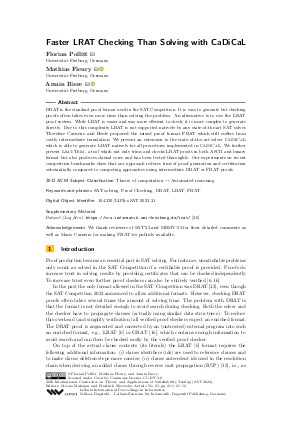LIPIcs.SAT.2023.21.pdf
- Filesize: 0.78 MB
- 12 pages

 Creative Commons Attribution 4.0 International license
Creative Commons Attribution 4.0 International license







Feedback for Dagstuhl Publishing